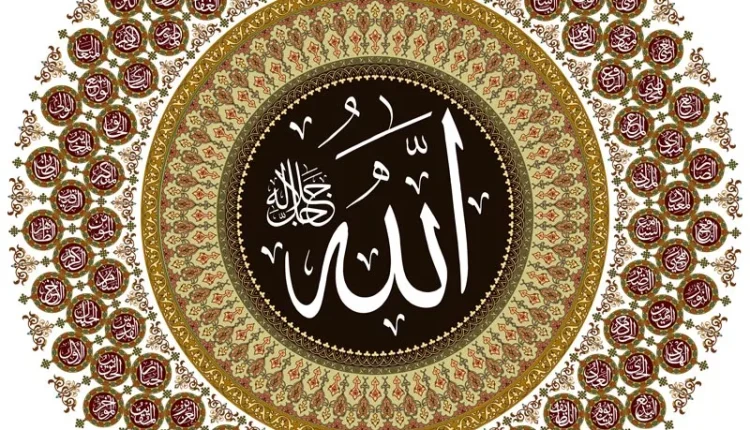Attributes of God
Contents
One of the things people wonder about is the attributes of God. How can we describe God? God is so great that His greatness is indescribable. However, God Himself has described Himself in the Quran so that we may become more familiar with Him. In this article on Islam4u, the following topics will be discussed:
What Are the Attributes of God in the Quran?
We all know that Allah has 99 names, some of which are mentioned in the Quran and most of which are stated in narrations from the Ahl al-Bayt (اَهلُ البَيت). These 99 names can also be considered as the attributes of God. Let us go over some of the attributes of God that have been mentioned in the Quran.
God Is Most Kind and Merciful
In surah Baqarah verse 143, God states:
إِنَّ اللَّهَ بِالنَّاسِ لَرَءُوفٌ رَحِيمٌ
Indeed, God is All-Kind, All-Merciful toward the people.1
God, our creator, sustainer, guide, Lord, and helper, is also very kind and merciful. Imagine what would have happened if God was not kind and merciful to us. It would be a disaster because He would not care what bad things would happen to us. However, God is kind and merciful to His creation and forgives them, and accepts their repentance. Of course, those who insist on committing sins and wrong other people will not enjoy God’s kindness and mercifulness after they die and on the Day of Judgment (Qiyamah). They will be punished by God unless they ask for forgiveness from God and reform. One must remember that somehow God is still kind to these individuals because He does not punish them right away and gives them a chance to repent. It should be noted, however, those who are unjust and disbelievers are given respite by God only so that they increase in their sins and suffer greater punishment in the Hereafter.2
Another way to look at it is by considering how parents love their children. When God bestows a child or children to a couple, oftentimes the parents love their children and are kind and merciful to them. This is one of the manifestations of God’s kindness and mercy to His creation. It is sometimes the case that parents do not like their children, but it is quite rare and most of the time it is after the children have grown up.
Two of the Attributes of God: The Living, the All-Sustainer
God says in verse 255 of Surah Baqarah:
اللَّهُ لَا إِلَٰهَ إِلَّا هُوَ الْحَيُّ الْقَيُّومُ
God [is your Lord alone]; there is no god except Him, the living, the All-Sustainer.3

This verse is the beginning of Āyat al-Kursiyy, which means the Verse of the Throne. God is Ever-Living. In other words, He never dies. Imagine how bad it would be if our God was not immortal. Things would go wrong. People would not have someone to rely on. If God died, who would succeed Him? This goes against the oneness of God. If there is only one God, then He must be immortal and eternal. Therefore, one of the most important attributes of God is that He is Ever-Living.
Now, what about the second attribute of God that is mentioned in this part of the verse? God is the All-Sustainer. It is actually an attribute that complements the previous one. God gives life, sustenance, and existence to everything that is in the universe. He is the one who causes human beings, animals, plants, the heavens, and the earth to exist. If God was not the All-Sustainer, we would not even exist. Who would provide for us? So it is again one of the required attributes of the one and only God. There is no God except Him. Therefore, the one God must sustain all of His creatures.
Another One of the Important Attributes of God
God has repeatedly stated in the Quran that He is the knower of all things.4 In other words, He is the All-Knower. For example, in verse 282 of surah Baqarah, God states:
وَاللَّهُ بِكُلِّ شَيْءٍ عَلِيمٌ ﴿٢٨٢﴾
And God knows all things.5
Not only does God know everything about us human beings, but also knows every single thing that exists in creation. For example, as God Himself has stated in the Quran, He knows everything that exists in the heavens and the earth. The fact that God is Omniscient (عَليم) is what makes Him Omnipotent (قَدير) as well. God knows everything and at the same time has power over all things.
One of the Attributes of God Is That He Is Almighty and All-Wise
God says in verse six of surah Āl-i ‘Imrān:
لَا إِلَٰهَ إِلَّا هُوَ الْعَزِيزُ الْحَكِيمُ ﴿٦﴾
There is no god other than Him. He is the Almighty, the All-Wise.6
God is Almighty, meaning He has absolute power over all things. At the same time, He is All-Wise, that is, everything He does is based on wisdom. In other words, He has good reasons for the actions He has taken in the universe. When God gives us something or takes away something from us, it is because He is All-Wise and His wisdom governs the entire universe. Therefore, we must believe in God, trust in Him, worship Him alone, and ask for His help in all moments of our lives.
Are the Attributes of God Reconcilable?
A question that arises here is whether the attributes of God can be reconciled or not. In other words, how is it possible that none of the attributes of God are contradictory? The answer is very clear. All of God’s attributes either prove a goodness or negate a badness. None of these attributes are contradictory. For example, when it is said God is All-Knowing, it also means that God is All-Seeing (بَصير) and All-Hearing (سَميع). All of the attributes of God complement each other and prove that He is just (عادِل), wise (حكيم), knower of all things (عَليم), one who rewards in the best way possible (الوهّاب), and yet a severe punisher (شَديد العِقاب) of the wicked. One should not suppose that God’s various attributes mean that He is made up of different essences. No. As a matter of fact, all of the attributes of God signify a single essence (ذات). That is why God states in surah Hashr verse 23:
هُوَ اللَّهُ الَّذِي لَا إِلَٰهَ إِلَّا هُوَ الْمَلِكُ الْقُدُّوسُ السَّلَامُ الْمُؤْمِنُ الْمُهَيْمِنُ الْعَزِيزُ الْجَبَّارُ الْمُتَكَبِّرُ ۚ سُبْحَانَ اللَّهِ عَمَّا يُشْرِكُونَ ﴿٢٣﴾
He is God, there is no God except Him, the Sovereign, the Holy, the Flawless, the [Provider of] Peace, the Guardian, the Powerful, the Compeller, and the Greatest. He is exalted and above what they ascribe [to Him].7
God is clear of the things that some people ascribe to Him. God has all the good attributes and does not have any evil qualities. In fact, a number of the attributes of God negate bad attributes from Him. For example, al-Ghaniyy (الغَني) which means All-Sufficient negates poverty from God. Another example would be al-Wāḥid which means the One; it negates multiplicity from God. Therefore, it becomes clear that all of God’s attributes signify a single essence and none of them are contradictory to one another.
Can People Also Have the Attributes of God?
We human beings are the noblest beings in God’s creation.8 The very first human being on earth was a prophet of God. God breathed His spirit into him and gave him life. God said to His angels that He wants to appoint a vicegerent on earth. Therefore, Adam became the representative of God on earth. Now, how would others know about God and His attributes? The answer is, Adam and all the prophets after him were the ones who invited people to believe in God and described God for people. He invited people to be fair and just, kind and compassionate, generous, and so forth. In other words, people should try to have the same qualities as God. That is when they become manifestations of God.
We know that God is kind, merciful, beneficent, and just and fair when we look at people such as the prophets. We as human beings should strive to become Godly people. As a result, human beings can have some of the attributes of God to a lower degree, but not all of His attributes. Certain attributes are specifically God’s attributes. We know them because our prophets and His other representatives on earth have explained and described them to us. For example, God is the one who owns everything that is in the heavens and earth; He alone has full knowledge of everything, and so on.
The Ahl al-Bayt’s Views Concerning the Attributes of God
Many of the things we know about God have come to us through the narrations from Prophet Muhammad and the Ahl al-Bayt (i.e. his household). For instance, the Prophet has said the following about the attribute of God, Dhū al-Jalāl wa al-Ikrām (ذو الجَلالِ وَالاکرام):
“Jalal is the name of a heaven which surrounds the Throne of God and its distance from the heaven that the servants of God dwell in is seven hundred years.”9 There is another narration by the great-grandson of the Prophet, Abu Ja‘far Muhammad ibn Ali, who states:
“What is meant by Jalal in surah Rahman are the infallible Imams from the progeny of the Prophet.”10 Based on this narration, God has given nobility to the servants of God through following the Imams from the progeny of the Prophet. So we know that the Prophet and his Ahl al-Bayt are the manifestations of God’s kindness, mercy, compassion, justice, grandeur, and so on.
Conclusion
These were some of the attributes of God. Of course, we did not go over all of them as they are many. However, these were some of the most important ones that we can relate to in our lives.
We here on Islam4u are happy to present our dear readers with a comprehensive course on “How to Understand the Quran (coming soon).” This course includes many lessons on different Quranic topics and will help the reader learn 70% of the frequently used words in the Quran. Incidentally, the course has two lessons on the attributes of God. By enrolling in this course, you will become more familiar with the attributes of God as stated in the Noble Quran.
References
- Quran 2:143 (Foroutan).
- Cf. Quran 3:178.
- Quran 2:255 (Foroutan).
- Cf. Quran 2:29, 2:32, 2:95, 2:115, 3:34, 3:63.
- Quran 2:282 (Foroutan).
- Quran 3:6 (Foroutan).
- Quran 59:23 (Foroutan).
- Cf. Quran 17:70.
- Kāshānī, M.F., Tafsīr Kabīr.
- Qummī, M.H., Tafsīr Qummī, commentary on verse 78 of surah Rahman.

